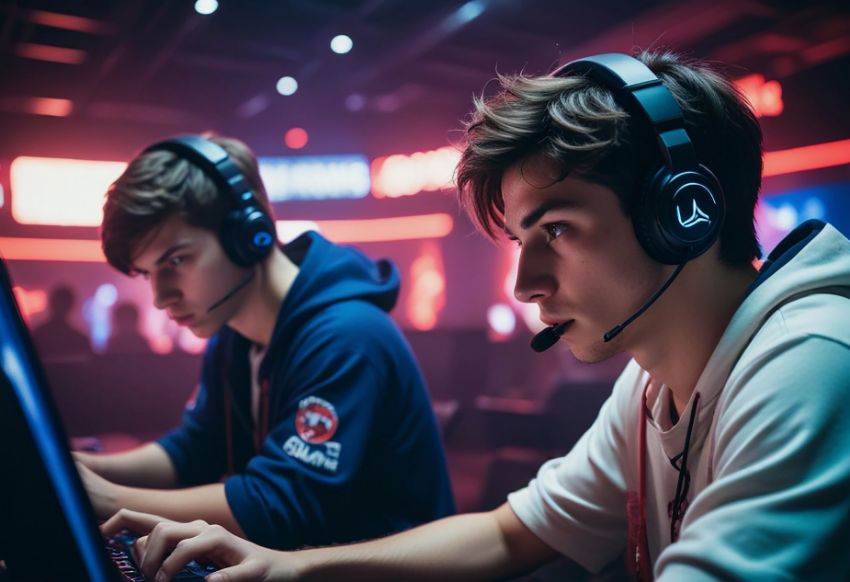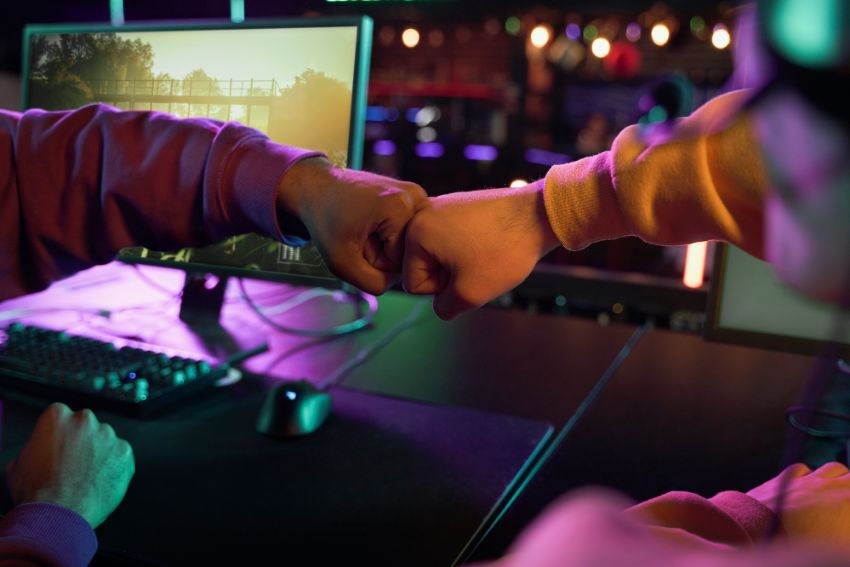When considering esports, the focus often falls on players, teams, and competitions, but the role of game developers is equally significant.
Game developers are responsible for creating balanced and competitive gaming environments that cater to both casual and hardcore players. Their responsibilities extend beyond the game’s initial launch, involving continuous updates and the implementation of anti-cheat measures to ensure fair play.
By engaging with the gaming community, developers help maintain inclusivity and transparency in their games. As the esports industry evolves, developers will need to adapt and enhance their roles to meet new challenges and opportunities.
Key Takeaways
- Game developers design and balance the gameplay, ensuring it is accessible, engaging, and competitive.
- Regular updates and bug fixes keep the game fresh and maintain its integrity.
- Advanced anti-cheat systems and player behavior monitoring preserve competitive fairness.
- Developers foster community engagement through events, communication, and inclusive features.
- Organized tournaments and esports partnerships enhance competitive play and viewer experience.
Game Design and Development
Game design and development are critical components of the esports industry, forming the basis for the experiences that engage millions of players and viewers globally. In the realm of esports, it becomes apparent that each competitive match and strategic maneuver is the result of careful design and development. Developers are responsible for creating games that feature immersive environments and complex mechanics, which test players’ skills and creativity.
An effective esports game typically combines accessibility with depth. This ensures that new players can quickly grasp the fundamental mechanics, while experienced players have access to multiple layers of strategy to explore. Developers achieve this balance by implementing intuitive controls, balanced gameplay mechanics, and engaging narratives.
The importance of visual and auditory elements in esports games should also be noted. High-quality graphics and sound design contribute significantly to the overall experience, enhancing the impact of victories and the learning opportunities from defeats. Developers focus on optimizing these elements to ensure consistent performance across different platforms and devices.
Balancing and Updates
Balancing and updates are essential for maintaining the longevity and competitiveness of esports titles. As a game developer, continuous monitoring of the game’s meta is necessary to ensure no character, weapon, or strategy becomes overwhelmingly dominant. Regular updates address these imbalances by adjusting stats, abilities, or mechanics, keeping the gameplay fair and enjoyable for both casual and professional players.
Introducing new content is also important to keep the community engaged. These updates can include new maps, characters, or game modes, which add layers of complexity and excitement. However, it’s crucial to implement changes thoughtfully to avoid disrupting the existing balance. Listening to player feedback and analyzing in-game data are key strategies for making informed decisions.
Frequent updates can also address bugs and improve performance, enhancing the overall user experience. Promptly addressing issues helps to maintain player trust and satisfaction. However, every update requires thorough testing to prevent new problems from arising.
Anti-Cheat Measures
When it comes to anti-cheat measures, you need to focus on robust cheat detection systems and consistent player behavior monitoring.
Ensuring software integrity is critical to maintain a fair playing field.
As a game developer, implementing these strategies will help safeguard your esport from cheating.
Cheat Detection Systems
Cheat detection systems are fundamental to ensuring fair play in esports. A competitive environment can’t thrive if players resort to cheating to secure victories. Consequently, game developers allocate substantial resources to develop advanced anti-cheat software, ensuring that all participants compete under the same conditions.
These systems are designed to identify and mitigate unfair advantages by detecting unauthorized software, irregular gameplay patterns, and other suspicious behaviors. The role of maintaining these systems is crucial and requires continuous updates and refinements to keep pace with evolving cheating tactics. This necessitates the use of machine learning algorithms and real-time monitoring to effectively identify and address potential threats.
In addition to catching cheaters, these systems aim to serve as a deterrent. The awareness that cheating is likely to be detected can discourage players from attempting to cheat.
Collaboration with the gaming community is also important. Players should be encouraged to report suspicious activities and provide feedback on the effectiveness of anti-cheat measures.
Transparency in this process is key; regular updates on actions taken against cheating can help build trust within the community and demonstrate a commitment to maintaining a fair and competitive gaming environment.
Player Behavior Monitoring
Player behavior monitoring is a critical component of anti-cheat measures employed by game developers in esports. By observing how players interact with the game, developers can identify activities that may indicate cheating.
Behavior monitoring functions similarly to a detective, continuously scanning for irregularities that deviate from normal gameplay patterns.
Developers utilize various tools to track player behaviors. For example, statistical models analyze player actions such as movement speed, aiming accuracy, and decision-making speed. If a player suddenly exhibits unusually precise performance, the system flags it for review.
These flags can lead to further investigation or immediate actions, such as temporary bans or increased scrutiny during gameplay.
In addition to automated systems, developers often rely on player reports. When players notice irregularities in another player’s performance, their reports can trigger more in-depth analysis.
This community-driven approach helps ensure that all players contribute to maintaining a fair playing environment.
Software Integrity Assurance
Ensuring software integrity is crucial for effective anti-cheat measures in esports. As a game developer, it’s important to implement robust security protocols to maintain a fair playing field. This involves using encryption to protect game files and employing real-time monitoring to detect unauthorized changes.
Developing a system that can quickly identify and respond to suspicious activities is essential for preventing cheaters from gaining an unfair advantage. Staying ahead of potential threats requires regularly updating anti-cheat mechanisms. Hackers continually seek new ways to exploit vulnerabilities, making regular software updates and patches necessary to fix bugs and close security loopholes.
Transparency is another key aspect. Informing players about the measures taken to ensure fair play can build trust and demonstrate a commitment to maintaining a competitive environment.
Additionally, providing a way for players to report suspicious behavior allows them to actively contribute to upholding game integrity.
Community Engagement
To engage your community effectively, focus on building strong player relationships, fostering inclusive environments, and facilitating open communication.
You can achieve this by listening to player feedback, promoting diversity, and maintaining transparency in your decisions.
These actions will help you create a loyal and thriving esports community.
Building Strong Player Relationships
To create thriving communities around esports titles, game developers need to engage actively with their player base. Establishing clear communication channels such as forums, social media, and Discord servers is essential. These platforms facilitate direct interaction with players, allowing developers to gather feedback and ensure that players feel heard.
Hosting regular events, including tournaments, Q&A sessions, and livestreams, is another effective strategy. These activities sustain community engagement and enable players to connect with each other and the developers. Offering rewards such as exclusive in-game items or recognition for participation can foster a sense of belonging and loyalty among players.
Transparency plays a crucial role in maintaining strong player relationships. Keeping the community informed about updates, patches, and future plans builds trust and support. Promptly addressing issues and demonstrating effective problem-solving can also mitigate negative experiences and reinforce positive interactions.
Additionally, celebrating player achievements is important. Highlighting community accomplishments, sharing user-generated content, and recognizing top players can contribute to a vibrant and dedicated community. By valuing players and their contributions, developers can cultivate a supportive environment around their esports titles.
Fostering Inclusive Environments
A thriving esports community values strong player relationships and champions inclusivity. As a game developer, you play a crucial role in fostering an environment where everyone feels welcome. One effective approach is to implement diverse characters and storylines in your games. Representation is significant, as it allows players to see themselves reflected in the game, which can be validating.
Prioritizing accessibility is also important. Ensure your game is playable by individuals with various abilities. This can be achieved through features like customizable controls, subtitles, and colorblind modes. By making your game accessible, you’re expanding your potential audience.
Community guidelines are another essential tool. Establish clear rules that promote respect and discourage toxic behavior, and enforce these rules consistently to create a safe space for all players. Providing reporting tools and swift responses to grievances can help maintain a positive atmosphere.
Additionally, hosting and supporting events that celebrate diversity can be beneficial. Events such as tournaments or discussion panels can underscore the importance of inclusivity within the esports community.
Facilitating Open Communication
Effective community engagement relies on open communication, which serves as a foundational element of a successful esports ecosystem. As a game developer, maintaining transparent and continuous dialogues with your community is essential. This involves actively listening to player feedback and addressing concerns in a timely manner. By doing so, you build trust and foster loyalty among your player base.
Utilizing multiple platforms can facilitate this communication effectively. Social media, forums, and Discord servers are suitable starting points. Regular updates and announcements help keep players informed and engaged. When responding to community input, ensure that responses are timely and meaningful, demonstrating that player opinions are valued.
Hosting AMAs (Ask Me Anything) or live Q&A sessions can also be beneficial. These interactions allow players to express their views and provide direct insights into their experiences. Additionally, being transparent about upcoming changes, updates, and the reasons behind them helps manage expectations and reduces misinformation.
Open communication involves more than just disseminating information; it requires fostering a two-way conversation. Encouraging community members to interact with each other and share their experiences can strengthen the community. This also provides a wealth of user-generated content and feedback that can be utilized to improve the game.
Official Tournaments
Official tournaments play a crucial role in the esports ecosystem by offering structured, high-stakes environments where top players and teams can demonstrate their abilities.
As a game developer, your responsibilities extend beyond game creation to organizing these significant events. This involves setting rules, balancing competition, and ensuring fair play. Effective tournament organization requires meticulous planning and a comprehensive understanding of the game’s mechanics and player dynamics.
Collaboration with various stakeholders, including teams, sponsors, and broadcast partners, is essential to create a seamless experience. Developing a compelling narrative around tournaments can enhance the game’s profile and attract a wider audience.
Ensuring that the tournament format is engaging, whether through innovative game modes or unique challenges, is also important.
Official tournaments serve as a platform for emerging talent to ascend through the ranks, providing them with valuable exposure. Additionally, these events offer critical feedback on game balance and mechanics, which can inform future updates.
Check out our article Understanding Esports Tournaments to learn more.
Esports Partnerships
Organizing official tournaments is a crucial element in the broader esports ecosystem, but robust partnerships are equally important for its development. Game developers play a significant role in establishing these alliances. They collaborate with sponsors, streaming platforms, and traditional sports organizations to enhance the overall experience.
When developers partner with streaming platforms such as Twitch or YouTube Gaming, they ensure that tournaments are accessible to a global audience. These partnerships often include exclusive broadcasting rights, which can result in higher-quality streams and improved viewer engagement.
Moreover, sponsors, including hardware manufacturers and energy drink companies, provide financial support, which can make prize pools more substantial and events more appealing.
Beyond financial considerations and broadcasts, developers also engage with teams and players to foster a sense of community and professionalism within the sport. These relationships can lead to better support for players, including access to training facilities and mental health resources.
Spectator Experience
The spectator experience is a critical component of any esports event’s success. Game developers are fundamental in shaping this experience by creating visually engaging environments and ensuring that game mechanics are clear and engaging to watch. Developers often include spectator-friendly features such as replay systems, customizable camera angles, and detailed player statistics.
Accessibility is another crucial aspect. Developers strive to optimize streaming quality and minimize latency, allowing viewers to watch matches without interruption. Collaboration with broadcasters is also essential to perfect overlay designs, ensuring that significant information is easily accessible and comprehensible.
Community engagement plays a significant role in enhancing the spectator experience. Developers often implement interactive elements like live polls, chat features, and virtual in-game events, which help in creating a more immersive viewing experience.
An engaged viewer is more likely to become a dedicated fan, and these interactive features contribute to building a robust community around the game.
Future Innovations
As the esports industry evolves, game developers are exploring various innovations to enhance both gaming and spectator experiences. One area of focus is the advancement of virtual reality (VR) and augmented reality (AR), which aim to provide a more immersive experience. These technologies can make users feel as though they’re part of the game environment, either on the battlefield or in the stadium.
Developers are also working on improving artificial intelligence (AI) to create more intelligent and challenging opponents, as well as dynamic game environments. These advancements are expected to elevate player skills and maintain a high level of competition.
Cross-platform play is another area seeing significant improvements, facilitating seamless competition between players using different devices. This inclusivity broadens the player base and fosters a more unified gaming community.
In-game analytics are being enhanced to offer deeper insights into player performance and strategies. Real-time stats and comprehensive data tracking will provide tools that were previously accessible only to professional teams, thereby democratizing advanced gameplay analysis.
Lastly, blockchain technology is poised to transform in-game economies by enabling secure trading and ownership of digital assets. This innovation introduces a new dimension of interaction and value within the gaming ecosystem.
By the way, take a look at our article https://bet-of-the-day.net/2024/10/02/the-future-of-esports/
Conclusion
In understanding the role of game developers in esports, you see their immense impact. They create balanced, engaging games, guarantee fair play with anti-cheat measures, and keep communities thriving through active engagement. By organizing official tournaments and forming key partnerships, they elevate the competitive scene. Innovations in VR and AI promise an exciting future. Game developers don’t just make games; they shape an inclusive, thrilling experience for players and spectators alike.



